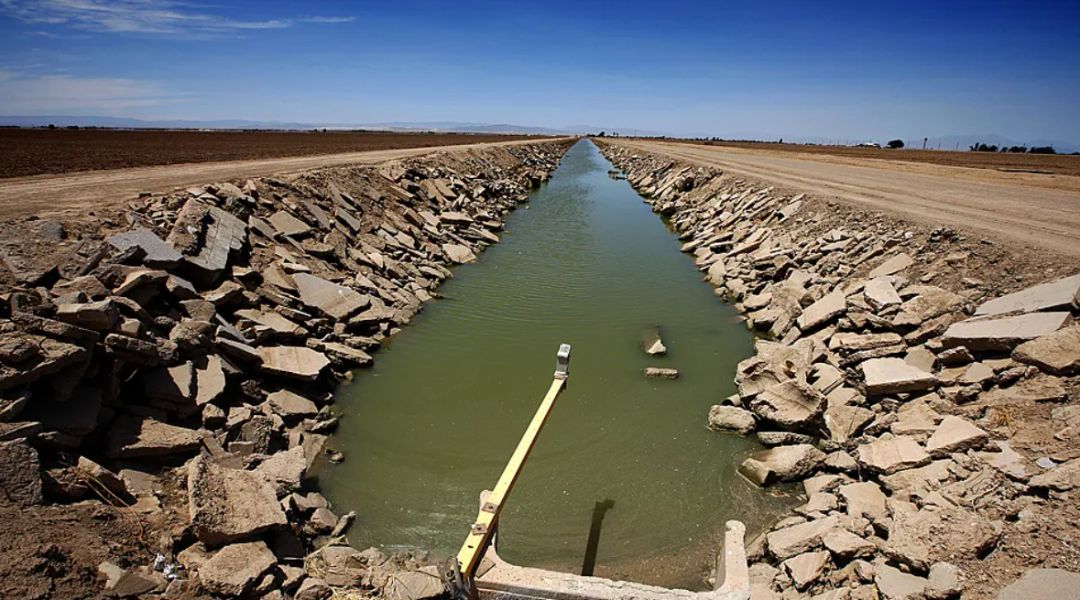
Oil is the source of wealth in the Middle East. However, the most important commodity is not oil – it’s water. And the region is running out of it. Drought and ill-sighted water management policies present a grave threat to the future of this region. The water situation is so bad that many believe that a war could breakout in this region in the near future.
Tensions & Crisis Related To Shortage Of Water In the Region
In the recent past, conflicts over water rights have sparked tensions in Jordan, Israel and elsewhere in the Middle East region. Many believe that the drought in Syria led to the war and caused the infamous Syrian crisis. Since 1988, former U.N. Secretary-General Boutros Boutros-Ghali had repeatedly warned that a war could break out due to the scarcity of water in the Middle East. The Syrian war is a burning example of that prediction. Boutros-Ghali also thought that an inter-state war could break out because of a dispute over the River Nile’s water. However, this has yet to happen.
Water Crisis in the Middle East
Iraq is particularly vulnerable to water shortages and droughts. The process of drainage and dam building have emptied all the marshes in southern Iraq reducing the marshland size by 90%. A Water Council has been formed to deal with Iraq’s water crisis and to fight against the issues of water shortages. Furthermore, Iraq has also complained that neighboring countries do not provide water in a sufficient manner. The hydroelectric dams in Turkey, Iran & Syria has taken up water from Iraq’s two rivers – Tigris and Euphrates. Due to which, the agricultural productions alongside these two rivers have taken a major hit. The war in Iraq and under-investment to the region have affected Iraq’s water system and irrigation networks. As a desert country, Iraq is already painfully affected by drought. Attack by the U.S. military on Iraqi water treatment plants and other key infrastructures is another reason for Iraq’s water crisis.
Jordan & Yemen both are facing severe water scarcity. Jordan’s average freshwater withdrawal is less than 10% of Portugal’s average, despite being the same size. Due to shortage of groundwater, cost of water in Jordan has increased by 30% in last 10 years.
Yemen is infamous for world’s highest rates of malnutrition. Over 30% of its population doesn’t meet their food needs. In recent years, Yemen has failed to produce enough food to sustain its population. Water scarcity has damaged the standard of living in this country.
United Arab Emirates is famous for its luxurious cities. The common assumption is that water scarcity is not a problem in this rich country. But in reality, UAE is facing water crisis due to depletion of available water resources. For last 30 years, the water table of this region has dropped about 1 meter per year. At this current rate, UAE will finish its natural freshwater resources in next fifty years. Hence, UAE needs to adjust its water use habits before its energy consumption doubles in 2020.
Finding a Consensus on the Future Of Water
Arab states have failed to find a consensus on water issues primarily due to their infighting, unstable relations and a failure to reach an united front to tackle a grave crisis. Water crisis in Middle East is bad, but it is just a glimpse of where the world is heading. A large portion of the world’s population is already running short of fresh water. Climate change, pollution, and increase in population are creating increased demand for a rapidly diminishing supply of fresh drinking water.
The Middle East has many struggles with its current water resources, and the region needs an unified approach to generate an environment optimal for the future.
Learning to solve water crisis by example
Last year Cape Town faced an unprecedented challenge that the largest city in South Africa is running out of water. The government announced “day zero” – a moment when dams will be out of water so that they have to turn off the taps in Cape Town and send people to collect water from communal water collection points.
The campaign worked. After years of trying to convince residents to conserve, this aggressive campaign jolted people to take action. Water use has been restricted to 50 litres per person per day. Households who exceed the limit are to face hefty fines. People started standing over buckets to catch and re-use that water, they recycled washing machine water, and limited loo flushes to once a day. Event though ‘Day Zero’ has been delayed, the crisis is yet to be averted
Renewable Water Resources
This gives the opportunity to government to think about using of renewable water resources. To learn from countries like United States, Canada, and China that used renewable water resources to meet the daily needs of their population.
